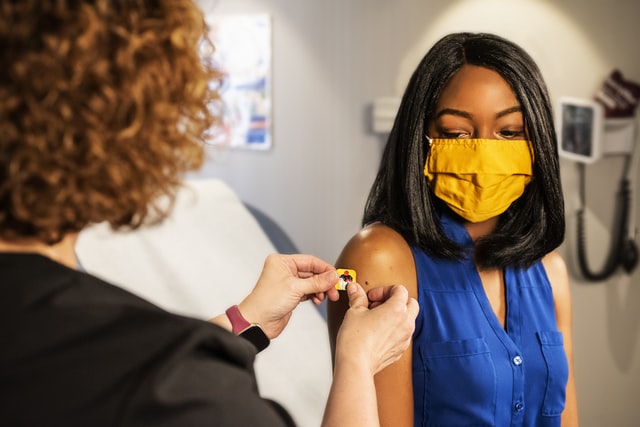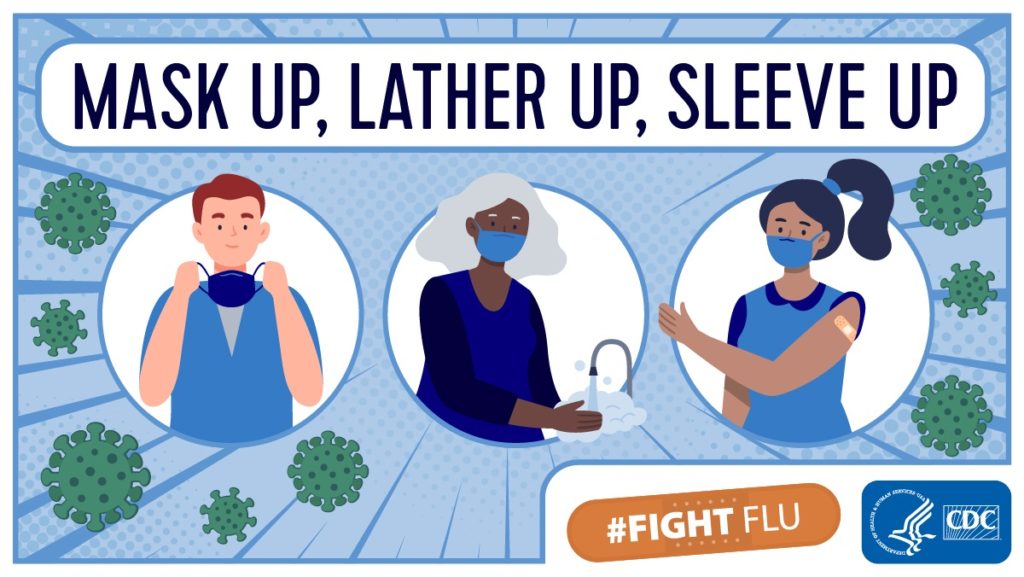What You Need to Know About the Flu Vaccine

Flu season begins around October every year in the United States. It’s not that you can only catch it in the fall/winter season. However, it peaks during the fall/winter season so that’s when it’s encouraged to get the flu vaccine. Now with COVID still roaming the streets, the push to get the flu vaccine seems even stronger. Why get vaccinated? Simply put, it decreases your chance of catching the flu. As a result, it also decreases your risk of dying from it.
What is the flu?
The flu, or influenza, is a virus that attacks one’s respiratory or breathing system. You get it from getting in contact with the droplets of an infected person who is sneezing, coughing, or talking. Those particles or droplets can land in your mouth and nose starting the process of you getting infected. The virus enters your cells and those cells are officially infected.
Do people die from the flu?
Short answer: yes. During the 2019-2020 season, the CDC reported 22,000 deaths from the flu. Typically, the US reports about 36,000 flu deaths a year but masks work.
However, those most affected by the flu are children younger than two, the elderly over 65, and those with high-risk medical conditions like heart disease or diabetes. There is a list of risk factors on the CDC’s website. If your risk factors are on that list, your consideration of the flu vaccine might require more attention. Some severe complications include pneumonia, sepsis, and organ failure.
Flu Prevention
Main things you can do to avoid catching the flu:
- Wash your hands for 20 seconds with soap and water or hand sanitizer.
- Avoid contact with people who are sick. If you can’t, I’d suggest wearing a mask so that particles can’t get to your nose and mouth.
- Get vaccinated.

Is there treatment for the flu?
Most people don’t need medical intervention when they get the flu as the symptoms are usually very mild. However, if someone exhibits severe symptoms and/or is at high risk medically, antivirals can be prescribed. These medications shorten the amount of time you’re sick and can prevent complications from the flu. They work best within a couple of days of showing symptoms so the quicker you get in touch with a doctor, the better.
Flu Vaccine Effectiveness
Effectiveness varies depending on the season and which brand of influenza is floating around your community. Generally, that is about 40-60%. Not as impressive as the numbers for the COVID vaccines we have available to us but let’s look at some numbers. The CDC predicted that while about 52% of those eligible took the vaccine, that prevented about 7.5 million infections and 6,300 deaths. If your loved one or yourself was among those spared, that 40-60% effectiveness would mean the world to you.
To note, the flu vaccine doesn’t cover every brand of flu. What this means is if the flu that’s circulating in your community is not covered by the vaccine, it would point-blank provide zero protection. Better safe than sorry though, no?
Flu Vaccine Side Effects
Side effects include soreness in the location it was received, fever, muscle aches, and fatigue. My experience: the fatigue is too real for me. It wipes me out completely and I have to take it every year since I am a nurse. It wasn’t until recently that I learned that “feeling sick” is a natural response to vaccinations. It also helps me to take Tylenol and/or Ibuprofen around the time I take the shot.
Should you take the flu vaccine?
The way I see any medical decision: make the decision that leaves you with the least “shoulda-coulda-woulda’s” aka regret. Talk to your practitioner about your risks with or without the vaccine. Don’t have a primary care provider? Most pharmacies that provide the vaccine have an FAQ section about it that addresses questions you may have. You can also talk to your local pharmacist.
READ MORE: Why should we have and see a primary care doctor?
Before becoming a nurse, I never took the flu vaccine, and now I take it yearly with no real issues besides being tired. Another great thing about vaccinations is that they are usually free if insured and low-cost if you aren’t. Checking CVS’s website just now shows the standard flu vaccine costs $41 for those paying out-of-pocket.
I hope this short article helped to answer some questions you might have about the flu and its vaccination. If you want more details, head over to CDC.gov. It is a great source of information regarding the flu virus and the flu vaccine.

